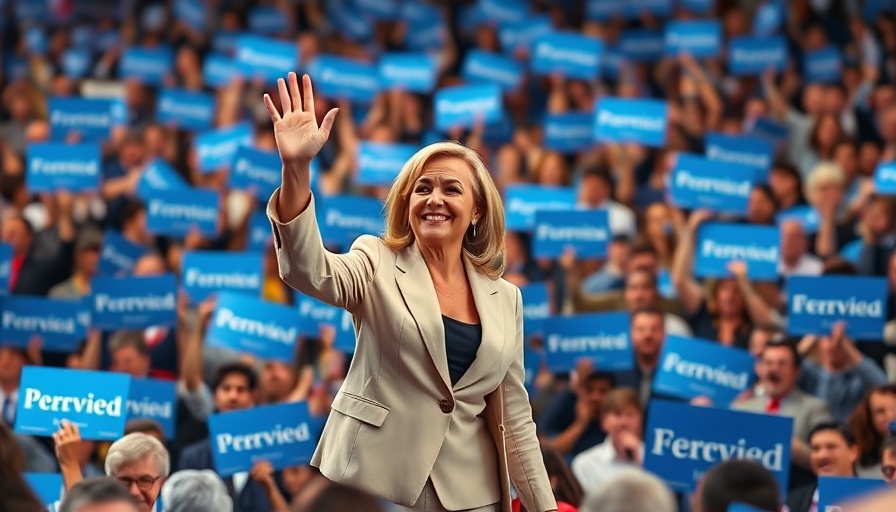
Why Kamala Harris Won't Chase the Governor's Mansion in 2026
In a surprise announcement that has sent ripples through California’s political landscape, Vice President Kamala Harris stated she will not seek the governorship of California in 2026. This decision has significant implications not only for her political career but also for the future of California’s leadership and for aspiring politicians in the Golden State.
Political Implications for California
Harris's decision to not run opens the door for other candidates to enter the race, potentially shaking up the political hierarchy within the state. Several prominent figures have already begun to position themselves as potential challengers, eyeing this opportunity to lead California during a time of social, economic, and environmental challenges. With issues like housing affordability and climate change at the forefront, the next governor will have to grapple with the needs of a diverse electorate.
Historical Context and Background
Candidates stepping up to the gubernatorial plate will likely reflect the evolving demographics of California. Over the past few decades, the state has transformed into a political bellwether for progressive policies, often leading the way in legislation affecting climate change, equity, and technology. Harris, who has been a prominent face in these political circles since her time as a U.S. senator, won significant support from voters who valued her progressive stance on key issues.
What This Means for Local Leaders
For politicians in local areas like Bakersfield, Harris’s decision can underscore the importance of local governance and community engagement. City council members and local leaders may need to rally support behind their respective initiatives to sustain momentum without the backing of a statewide figure. This is an opportunity for local voices to rise in influence, connecting with constituents to address grassroots concerns directly.
Future Predictions and Opportunities
Without Harris in the running, we might anticipate a more diverse slate of candidates stepping forward, including people of varying backgrounds and experiences. This could lead to unique discussions and debates on policies ranging from health care accessibility to education reform. Such diversity can help attract a more extensive voter base and create a vibrant political environment.
Potential Candidates to Watch
The absence of Harris means local politicians and activists are poised to vie for attention in the upcoming election. Key figures already in the mix include California Attorney General Rob Bonta and State Senator Toni Atkins, who have each built significant followings based on their legislative records. The question remains: who will be able to galvanize enough support to move from the campaign trail to the governor's mansion?
What Bakersfield Residents Should Know
For residents of Bakersfield, understanding these developments is crucial as the outcome will directly impact local resources and policies. Running for governor is not just about securing a title — it's about who can effectively respond to the issues that matter most to California families. Community-driven initiatives will need the support of the next governor to ensure that local concerns remain at the forefront of state legislation.
Conclusion: Engage With Your Political Future
As the story of Kamala Harris's political journey unfolds, it's essential for residents of California, particularly those in Bakersfield, to stay informed and active in local and state politics. This is your opportunity to engage with the issues that matter to you and hold your leaders accountable. Bookmark the latest updates, engage in discussions, and consider getting involved in local political initiatives.
 Add Row
Add Row  Add
Add 



Write A Comment